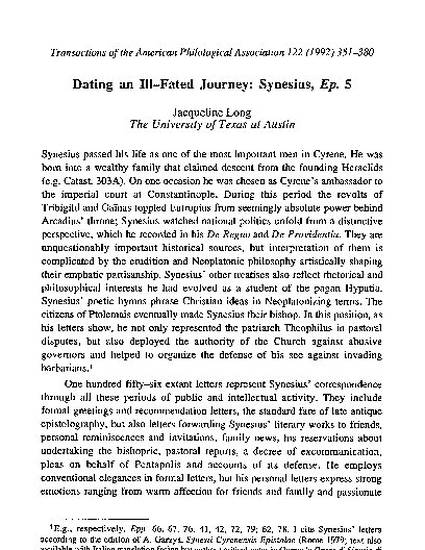
Synesius passed his life as one of the most important men in Cyrene. He was born into a wealthy family that claimed descent from the founding Heraclids (e.g. Catast. 303A). On one occasion he was chosen as Cyrene's ambassador to the imperial court at Constantinople. During this period the revolts of Tribigild and Gamnas toppled Eutropius from seemingly absolute power behind Arcadius' throne; Synesius watched national politics unfold from a distinctive perspective, which he recorded in his De Regno and De Providentia. They are unquestionably important historical sources, but interpretation of them is complicated by the erudition and Neoplatonic philosophy artistically shaping their emphatic partisanship. Synesius' other treatises also reflect rhetorical and philosophical interests he had evolved as a student of the pagan Hypatia. Synesius' poetic hymns phrase Christian ideas in Neoplatonizing terms. The citizens of Ptolemais eventually made Synesius their bishop. In this position, as his letters show, he not only represented the patriarch Theophilus in pastoral disputes, but also deployed the authority of the Church against abusive governors and helped to organize the defense of his see against invading barbarians.
© American Philological Association, 1992.

Author Posting © 1992, American Philological Association. This article is posted here by permission of the American Philological Association for personal use, not for redistribution. The article was published in Transactions of the American Philological Association, Volume 122, 1992, http://dx.doi.org/10.2307/284379.